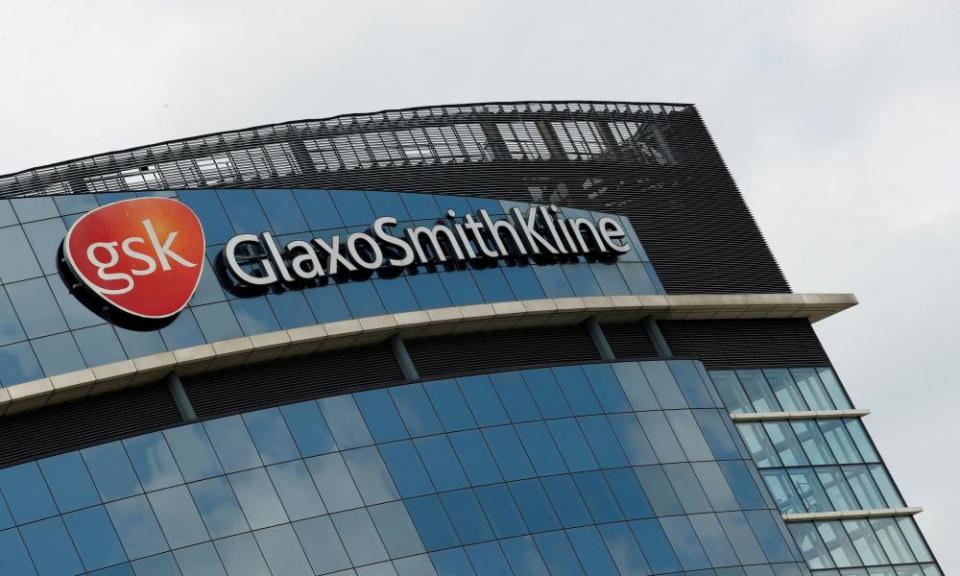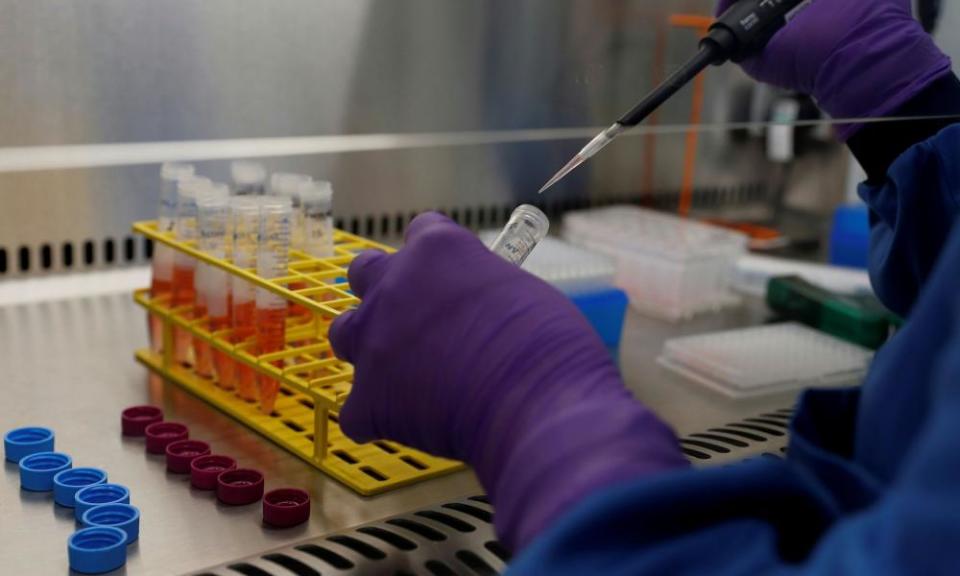Will Emma Walmsley’s radical therapy cure GlaxoSmithKline?

Dame Emma Walmsley faces the toughest day of her career as chief executive of GlaxoSmithKline on Wednesday. The head of Britain’s second-biggest drugmaker will present a 10-year outlook to shareholders and analysts, under pressure from an aggressive US hedge fund to demonstrate that she is the right person to lead the company beyond its breakup next summer.
Since New York-based Elliott Management took a multibillion-pound stake in GSK in April to push for change, Walmsley – one of only seven female FTSE 100 chief executives – has been under mounting pressure to improve the drugmaker’s performance. She inherited a threadbare pipeline of new medicines when she took over from Sir Andrew Witty in April 2017, but after four years, some say it is time for her to be delivering. GSK’s share price has fallen 14% during that time to £14.23– below the £18 level at which it stood when Glaxo Wellcome and SmithKline Beecham merged in 2000.
During three and a half hours of virtual presentations from GSK’s London headquarters, Walmsley and her top executives will unveil details and exact timings of the planned mid-2022 division of the group into a pharmaceuticals-and-vaccines business, provisionally known as “New GSK”, and a consumer healthcare business, controlling brands such as Sensodyne toothpaste and Panadol painkillers.
She will also give five- and 10-year growth forecasts, details of a planned cut in the dividend in 2022, which analysts predict will almost halve to 45p a share, and future dividend payments.
Splitting off the consumer business – which Walmsley ran before her elevation to chief executive and which has been valued at £30bn-£45bn by analysts – could happen through a demerger, allowing current shareholders to own the business, or an initial public offering (IPO) that would raise new money to be invested in the pharma business, or a hybrid of the two options.
GSK has been planning for a demerger, but some analysts have suggested that selling a stake through a partial IPO would be a better route.

But while there appears to be broad backing from a majority of shareholders for the strategy, Elliott, which is run by billionaire Paul Singer, has ignited a debate over whether Walmsley should lead the new pharmaceuticals and vaccines company. She is not a scientist, critics say; however, she has hired a number of top scientists, including the head of pharma and chief commercial officer, Luke Miels, who was poached from rival AstraZeneca in one of her Walmsley’s first big moves as chief executive.
Alistair Campbell, a pharmaceutical analyst at stockbroker Liberum, said that questions could be raised over who leads a new-look GSK. “You could ask: why the need for such a complex management structure? That’s the main leadership question. And if you were to try to simplify things, it may make more sense for the current head of pharma to assume full responsibility over time.”
On the other hand, GSK’s chair, Sir Jonathan Symonds, was very supportive of Walmsley at the recent annual meeting. “I would be amazed if she wasn’t given the opportunity to see her strategy through to its conclusion, particularly as elements of that strategy, such as revamping R&D, just don’t come through overnight,” Campbell said.
Walmsley has vowed to steer the £72bn “supertanker,” which employs 94,000 people, through the breakup and beyond. But on Wednesday she will need to present a good set of forecasts, and a plausible plan to achieve them, to shore up her credibility. She will also need to allay doubts about the quality of the drugs pipeline.
It is worth remembering that many analysts and investors were sceptical when AstraZeneca’s chief executive, Pascal Soriot, pledged in 2014 to raise revenues by 75% to $45bn (£32bn) by 2023 to fend off a hostile takeover from US rival Pfizer – but he is on track to achieve or even beat that target.
Whatever Elliott’s intentions are, it needs to step carefully. Kwasi Kwarteng, the UK business secretary, has instructed his officials to monitor the situation. The government, which regards GSK as a national champion, is concerned by City speculation that the world’s biggest activist investor could push for it to be sold, or undergo a further breakup.
Analysts are forecasting £30bn in sales for “New GSK” in 2026, an increase on it £17bn in pharmaceuticals sales and £7bn for vaccines last year. Peter Welford, an analyst at stockbroker Jefferies, said it would be a challenge to maintain that level until 2031, as one of GSK’s big-selling HIV drugs, dolutegravir, will lose patent protection in 2028-29.
GSK will argue this week that its injectable, long-lasting HIV drug Cabenuva – the world’s first such treatment, replacing daily pills with monthly injections – can make up the shortfall. One component of the injection, cabotegravir, has also been shown as effective at preventing HIV infection. Among assets in development, the firm is likely to highlight a long-acting treatment for severe asthma and vaccines for the potentially serious respiratory disease RSV.
Welford reckons that the new biopharma business could be worth up to £85bn – much higher than the value of £47bn-£49bn implied by the current share price, assuming the consumer venture is valued at £45bn.
GSK has carved out a leading position for its HIV drugs and its vaccines for shingles and cervical cancer. In recent years it has also refocused on immunology, infectious diseases and treatments for cancer.

Barclays analyst Emily Field said the mood around GSK had been frenetic since the Elliott stake was revealed. “Everyone’s been trying to find some quick fix. The [AstraZeneca] turnaround didn’t happen overnight … GSK is not something that’s going to happen overnight. What the company really needs to do is narrow its strategic focus on therapeutic areas that they think they are good at, and make the right investments.”
She pointed to the drugmaker’s successes with respiratory and HIV drugs, while its attempts to get back into oncology, after Walmsley’s predecessor sold GSK’s cancer portfolio to Novartis in 2015, have suffered several setbacks recently. “Investors are very sceptical of the foray into oncology,” she said.
Last week, the drugmaker struck a $2bn deal with the Boston firm iTeos to develop together a next-generation cancer immunotherapy, designed to trigger an anti-tumour response by the body’s immune system.
GSK has also been criticised for its slow response in the race to develop Covid-19 vaccines, despite being one of the world’s biggest vaccine-makers. The vaccine it is developing with French drugmaker Sanofi is now in late-stage clinical trials after delays and could be available by the end of the year.
Field believes that Walmsley will stay on. “She’s running the show. I don’t get the sense that she wants to go, and I don’t think anyone would force her out.”
Analysts at Morgan Stanley said: “There is no doubt that the shape of the GSK biopharma business is changing. The key question for investors is whether the pace of change is fast enough.”
For Walmsley, the answer is yes: and Wednesday is her best chance to convince the doubters.

 Yahoo Movies
Yahoo Movies 
